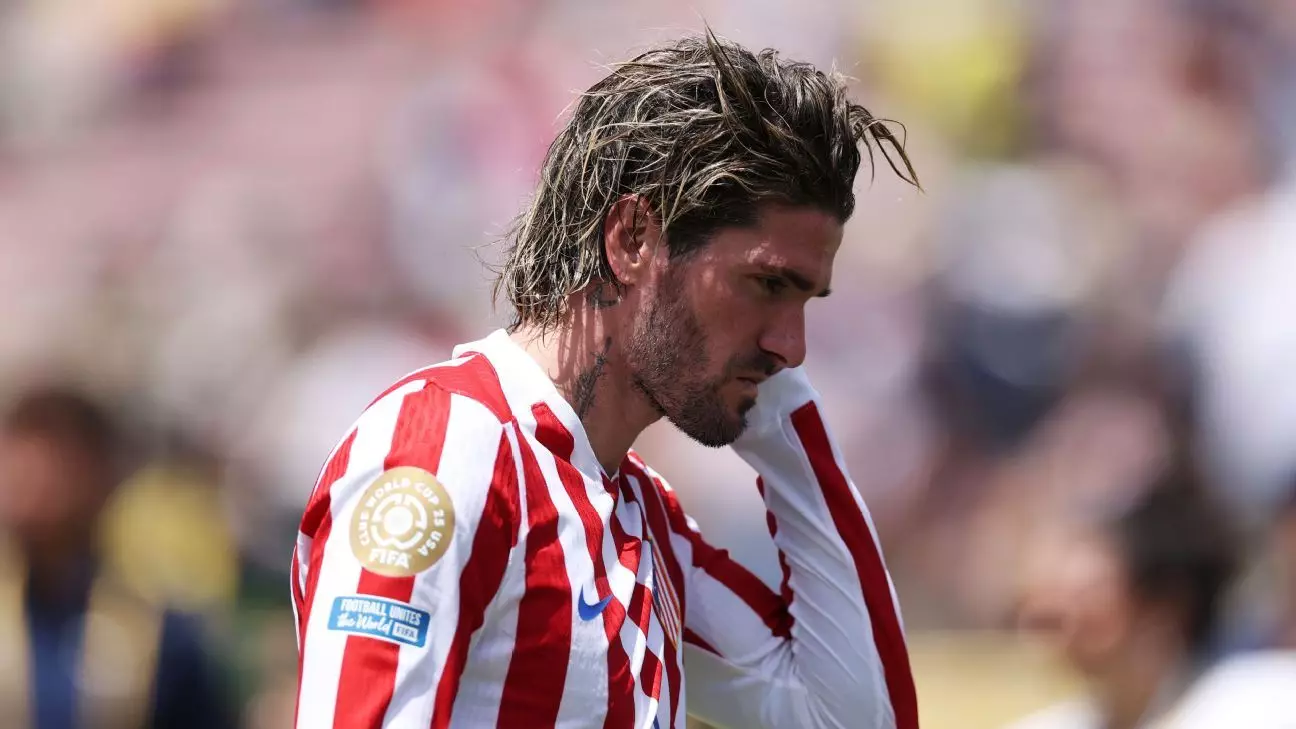In the ever-evolving landscape of Major League Soccer, Inter Miami stands out as a franchise hell-bent on transcending regional limits and establishing itself as a continental powerhouse. The club’s recent negotiations with Atlético Madrid to acquire Rodrigo De Paul are more than just a transaction; they symbolize a defining shift in the league’s ambitions. By targeting a player of De Paul’s caliber, Inter Miami demonstrates a commitment to not merely participate but to dominate, reshaping perceptions of what MLS teams can achieve with strategic investments. This move is a testament to the club’s broader vision: to attract top-tier talent, elevate the league’s competitive standards, and create a soccer environment that rivals established global markets.
Such tactics mark a profound departure from the traditional MLS approach, which often favored domestic talent and cautious transfers. By engaging in high-profile negotiations, Miami seeks to reposition the league as a destination for international stars and established European players, thus elevating its stature on the world stage. The involvement of Jorge Mas, the club’s ambitious co-owner, underscores this intent. His willingness to travel to Madrid and negotiate directly with Atlético exemplifies an aggressive, front-foot approach that other MLS clubs might soon emulate. Inter Miami is not satisfied with being a regional club; it aims to be a global contender, and acquiring De Paul is their strategic foothold into that vision.
Challenges and Opportunities Amid Transfer Turmoil
However, navigating this high-stakes transfer window is fraught with complexities that threaten to derail Miami’s ambitions. The club faces the delicate challenge of roster management, particularly concerning the squad’s Designated Player spots. Presently, Lionel Messi, Jordi Alba, and Sergio Busquets occupy these slots—each a major star whose presence amplifies the club’s allure. Yet, with Messi and Busquets approaching contract expiration and Alba recently extending his stay, the team must carefully balance the desire to bring in De Paul with the practical necessity of maintaining star power.
Additionally, an unwillingness from Atlético Madrid to lower their asking price complicates negotiations. The Spanish giants’ reluctance to part with De Paul without a hefty transfer fee underscores the challenge of signing top-tier European talent to MLS teams, which often have constrained budgets. Miami’s strength lies in its vision to assemble an all-star squad, but financial and contractual hurdles threaten to impede this plan. Miami’s strategic move to potentially release Busquets or find innovative roster solutions signifies their willingness to think outside the box, but such moves carry risks of disrupting team chemistry and diminishing on-field performance.
Furthermore, the potential departure of De Paul raises questions about team continuity. Atlético Madrid values De Paul highly, considering him crucial under Diego Simeone’s disciplined system. Should he choose not to extend his stay, his exit could create a void in midfield, forcing the team to seek replacements such as Valencia’s Javi Guerra or other emerging talents. These replacements may not match De Paul’s experience or chemistry, potentially destabilizing Atlético’s tactical setup and affecting their season performance. For Miami, leveraging Messi’s influence to sway De Paul becomes a key element—yet, the reality remains that international transfers are unpredictable, and the risk of missing out looms large.
The Broader Impact of Global Player Movements
This transfer saga illustrates an increasing trend: MLS clubs are no longer merely feeder leagues for Europe but are positioning themselves as viable competitive destinations. Miami’s pursuit of De Paul, underpinned by Mas’s rhetoric of competing beyond North America, reflects a broader ambition to elevate MLS’s global standing. The league’s reputation as a thematic amalgamation of talent from across the world is now actively being cultivated through these marquee signings.
In perception, signing a player like De Paul sends a message to other international athletes that MLS is a legitimate competitive option—one willing to attract players with proven European experience. The strategic use of Messi’s presence as a magnet for other Argentine or South American stars exemplifies this soft power. Miami’s willingness to pay a premium, even when it surpasses traditional MLS budgets, underscores a new era: the league intends to increasingly operate on a global scale, challenging stereotypes about domestic limitations.
Ultimately, the pursuit of De Paul reveals a strategic posture that could redefine the league’s future. Whether successful or not, this effort demonstrates that MLS clubs are increasingly thinking long-term about their competitive and commercial potential. As Miami pushes forward, their bold approach could serve as a template for other teams eager to forge their own paths toward international recognition and sporting excellence.

